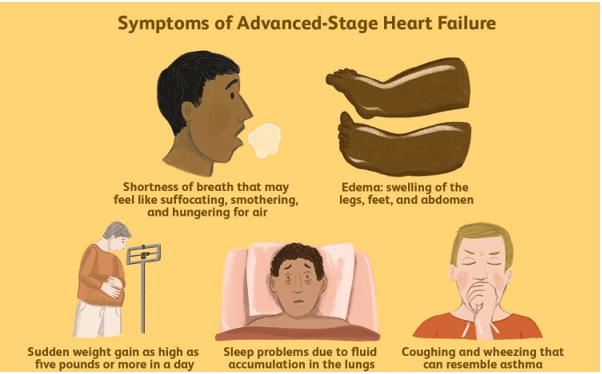A nurse is reinforcing teaching with a client who has GERD and a prescription for pantoprazole. Which of the following statements indicates an understanding of the teaching?
"I will need to remain upright for 1 hour after taking the medication."
"I have to take this medication on an empty stomach."
"I should expect to have diarrhoea while taking this medication."
"I can take antacids at the same time as this medication."
The Correct Answer is B
Nursing Test Bank
Naxlex Comprehensive Predictor Exams
Related Questions
Correct Answer is A
Explanation
a. "I should discuss this document with my family after I sign it"
Advance directives are legal documents that allow an individual to specify the type of medical care they want to receive in case they become unable to make their own decisions. It is important for the client to discuss their wishes with their family members or loved ones so that they are aware of the client's desires and can act accordingly in case of an emergency.
b. "I am not allowed to change my mind once I sign this document" is incorrect. The client can change their mind about their advance directive at any time and for any reason. It is important for the client to review their advance directive periodically and make changes as necessary.
c. "An atorney will need to notarize this document for it to be valid" is also incorrect. While some states require advance directives to be notarized or witnessed, not all states do. It is important for the client to check with their state's laws regarding advance directives to ensure that their document is legally binding.
d. "My partner needs to be present when I sign this document" is not necessarily true. While it is recommended for the client to have a witness present when signing their advance directive, it does not have to be their partner. The witness should be someone who is not a family member, healthcare provider, or beneficiary of the client's estate.

Correct Answer is C
Explanation
Assessing the client's ability to use the call light is crucial for their safety and well-being. If the client is unable to use the call light to request assistance, it increases the risk of falls or accidents when they attempt to move or perform tasks without assistance. By determining the client's ability to use the call light, the nurse can ensure that appropriate measures are in place to enable the client to call for help whenever needed.
Applying rubber-soled slippers before ambulation helps to provide better traction and reduce the risk of slips and falls, but it can be implemented after assessing the client's ability to use the call light.
Moving the bedside table closer to the bed is helpful for the client to access personal items without the need to reach or stretch, but it is not the highest priority among the given options.
Creating a schedule with assistive personnel for hourly rounding is important for regular checks on the client's safety and well-being, but it can be arranged after assessing the client's ability to use the call light.
Whether you are a student looking to ace your exams or a practicing nurse seeking to enhance your expertise , our nursing education contents will empower you with the confidence and competence to make a difference in the lives of patients and become a respected leader in the healthcare field.
Visit Naxlex, invest in your future and unlock endless possibilities with our unparalleled nursing education contents today
Report Wrong Answer on the Current Question
Do you disagree with the answer? If yes, what is your expected answer? Explain.
Kindly be descriptive with the issue you are facing.
